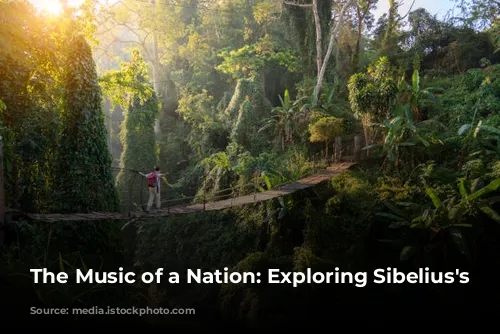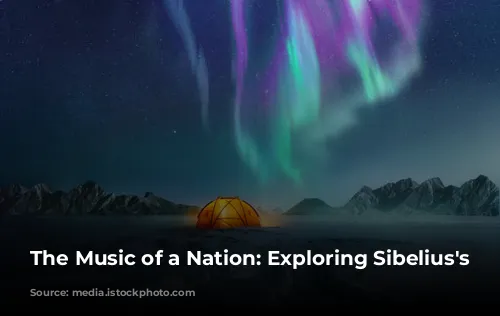Jean Sibelius, a name synonymous with Finland, didn’t just compose music; he sculpted the very soul of a nation. His symphonies, especially the Fifth Symphony, resonate with the tumultuous history of Finland, a country caught between powerful empires.
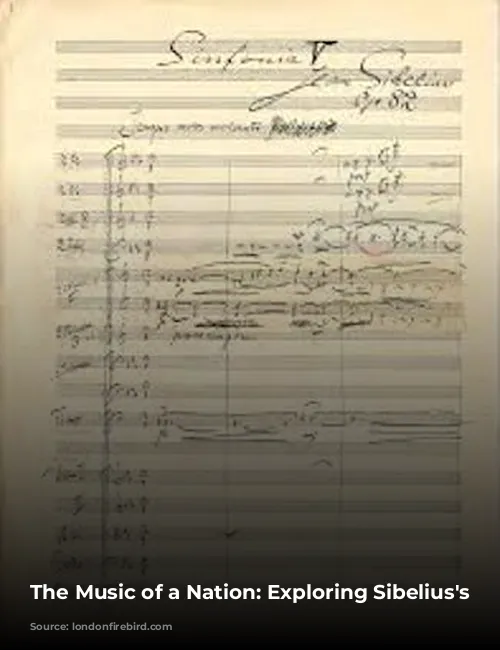
A Symphony of Struggle
Sibelius’s music emerged during a period of intense national identity formation for Finland. Born in 1865, Sibelius witnessed his country’s struggles for independence. From the 18th century, Finland found itself caught in the crossfire between Sweden and Russia, facing repeated occupations. The 19th century brought a surge of Finnish patriotism, a yearning for autonomy.
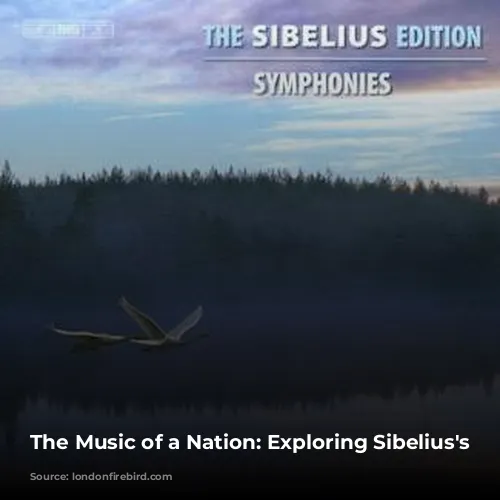
A National Hero Emerges
It was during this period of national awakening that Sibelius’s First Symphony was born. The year was 1899, and Russia’s Emperor Nicholas II was attempting to tighten control over Finland. Sibelius’s music, infused with a patriotic fervor, resonated deeply with the Finns. He was quickly hailed as a national hero. His Second Symphony, premiered in 1902, during a period of intense Russian oppression, further cemented his status. It was a musical expression of Finnish resilience.

A Symphony of Transformation
Sibelius’s creative process was not without its challenges. Despite his immense talent, he grappled with alcoholism, a struggle that profoundly impacted his life and his music. His Third Symphony, composed after a period of intense struggle against his demons, is said to be “internally new and revolutionary,” drawing on themes from Finnish folk music.
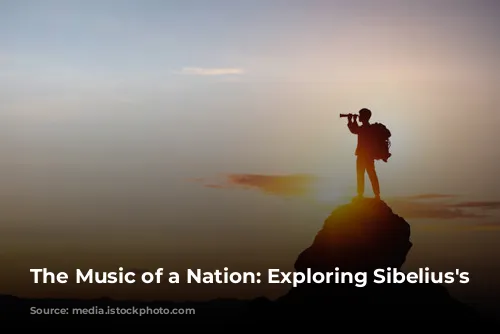
A Symphony of Introspection
A brush with death, in 1907, when Sibelius had a tumor removed from his throat, marked a turning point in his life. This experience, along with the tumultuous events of the early 20th century, deeply influenced his Fourth Symphony. However, this introspective symphony was not well received by audiences, who found it too “sad” and “melancholy.”

A Symphony of Swans
Sibelius’s Fifth Symphony is considered one of his most profound works. It was during a journey back from the United States, where his Fourth Symphony had been met with indifference, that Sibelius witnessed 16 swans flying in formation. This awe-inspiring sight became the inspiration for the symphony’s finale. He called it “one of the great experiences of my life!”

A Symphony of Liberation
The Fifth Symphony was premiered on the eve of Sibelius’s 50th birthday, coinciding with the Russian Revolution, which finally brought Finland its independence. His Sixth Symphony, premiered in 1923, celebrated this newfound freedom.

A Symphony of Legacy
Though Sibelius continued to compose, his Seventh Symphony, completed in 1924, marked the end of a magnificent chapter in his life. His final words, “If I cannot write a better symphony than my Seventh, then it shall be my last,” reflect his self-critical nature and his unwavering pursuit of artistic excellence. He destroyed all his remaining manuscripts, leaving behind a legacy that continues to inspire.
Sibelius’s symphonies are more than just musical compositions; they are a testament to a nation’s spirit, a reflection of its struggles and triumphs, and a celebration of its enduring identity.



